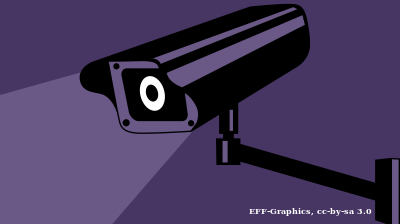For quite a while, Russia has entertained the concept of a "sovereign internet," which basically means cutting itself off from the World Wide Web. In early February, Dmitry Medvedev, former president and now deputy head of the security council, confirmed that Russia is still seriously considering this option.
"Key controls [over the global internet] are in the United States," he was quoted as saying by Kommersant. "Therefore, in case of an emergency, [Russia could disconnect from the World Wide Web]. This is why regulations on Russia's segment of the internet were adopted."
In November 2019, Russia adopted regulations that created a legal framework for centralised state management of the internet within Russia's borders – a concept often referred to as "sovereign internet."
While creating a legal basis for disconnecting from the global internet, the regulations also built a framework for potentially tighter state control over content available online to users in Russia. The regulations were expected to accelerate the fragmentation of the global internet, introducing control over the internet in Russia based on China's model.
Still, for over a year since the regulations were adopted, Russian officials didn't take any steps or announce plans regarding the implementation of the regulations. Now, based on Medvedev's statements, it's clear that the idea of the sovereign internet is still on the table.
However, Russian authorities apparently realize that running a sovereign internet would be difficult.
"We have to be realistic," Medvedev told Kommersant. "If we make a decision of that kind, it will lead to significant problems. That is, re-adjusting the Russian internet will take some time, but, in principle, the Russian segment of the internet could run autonomously."
Russian leadership has been especially uneasy about the way the global internet is run since 2014, when relations between Russia and the West soured following the annexation of Crimea from Ukraine.
"The internet arrived as a special project of the United States' CIA, and it has been developing as such," Russia's president Vladimir Putin commented back then.
Reportedly, over the past few months, Russian telecom companies have been installing, at authorities' demand, equipment that would enable filtering online traffic and, in case of Russia's breaking away from the global internet, would maintain the operation of the Russian internet segment. Under the latter scenario, Roskomnadzor, Russia's communications watchdog, would assume control over a sovereign internet.
So far, however, equipment of this kind has been installed and tested in a handful of Russian regions. Due to the coronavirus (COVID-19) pandemic, further tests were postponed.
Observers say, at this point, Russia has the technical capabilities to block some information from spreading online, but running an entirely sovereign internet wouldn't be feasible.
"The regulations adopted so far are basically declaring an intent," Filipp Kulin, general director of Diphost online company, was quoted as saying by Kommersant. "On the tech side, they offer nothing except for filtering banned information, but it's just the start."
"The focus is specifically on fighting banned information," he went on to say. "And I can't say what impact it will have on cutting off from the global internet. In any case, specific regulations need to be created first."
According to earlier reports, the Russian government was willing to bankroll the installation of telecom equipment for "autonomous internet," spending about RUB20bn ($264mn).
The execution of the sovereign internet plans would lead to a situation when popular global services would not be available in Russia, experts warn.
"All content hosted outside the Russian Federation, most likely, won't be available here," Sergei Grebennikov, director of the Regional public centre for internet technologies, told Kommersant. "Even though we are told that Google, Facebook or Yandex host content on the territory of the Russian Federation, if Russia is cut off the global internet, we won't be able to properly use many services."
Meanwhile, there's a precedent of Russian authorities' miserable failure to ban the messaging service Telegram. For two years, Roskomnadzor tried to block the use of the app in Russia until last year the agency admitted it didn't have the tech capability to do so.
-
 This article is part of bne IntelliNews coverage of technology, blockchain, fintech, cryptocurrencies and the new economy. Sign up for the free monthly newsletter bneTech here, or read more tech stories on the website here.
This article is part of bne IntelliNews coverage of technology, blockchain, fintech, cryptocurrencies and the new economy. Sign up for the free monthly newsletter bneTech here, or read more tech stories on the website here.
Read the latest issue of bneTech here
Sign up for free here
https://to989.infusionsoft.com/app/form/sub-bnetech-sign-up
bne’s tech section online
http://www.intellinews.com/tech/
Tech

Albania’s AI minister ‘pregnant’ with 83 children, PM says
AI “minister” Diella will give birth to dozens of digital parliamentary assistants for ruling party MPs.

Is Kazakhstan building a digital utopia, or a China-style surveillance state?
Many Kazakhs will tell you that officials should limit their ambitions to fixing the internet speed. Others worry that the time for joking is over.

Kia inaugurates $310mn "highly automated" automotive plant in Kazakhstan
Featuring 68 industrial robots, the plant is designed to produce up to 70,000 vehicles annually.

Romanian startup .lumen wins €11mn EU grant to develop autonomous delivery robots
Funds to back project aimed at developing a new generation of humanoid and quadruped robots capable of navigating pavements and crowded urban areas autonomously.


.jpg)
